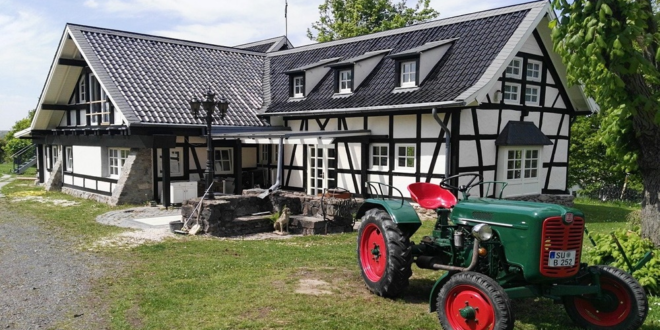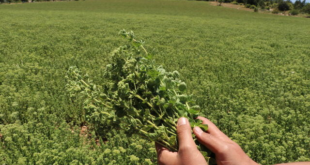Germany saw an average of 10 farms go out of business every day in the last decade, according to the German government’s agricultural policy report, which has spurred associations and the opposition to call on the agriculture minister to take action.
The number of farms that closed between 2010 and 2020 totalled around 36,000, according to the report that the federal government has to submit to the German Federal Parliament Bundestag every four years.
This represents a decline of around 12%, which also corresponds to a loss of around one in seven jobs.

For German Agriculture Minister Cem Özdemir, the decades-long policy of “grow or die” is one of the main reasons for the major structural change.
To support smaller farms, Germany is making the most of the room for manoeuvre granted by the EU in the current funding period of the EU Common Agricultural Policy (CAP) to redistribute subsidies from large to small and medium-sized farms.
“Our farmers are ready for change, but they need planning security,” explained Özdemir in a statement, admitting that planning security has recently been lacking.
Planning has been made particularly difficult by strong fluctuations in income, putting many farms under pressure as the report speaks of “considerable annual income fluctuations in agriculture”, primarily due to weather conditions and fluctuations in producer and input prices.

“It is the task of policymakers to make the framework conditions as crisis-proof as possible so that farms can operate successfully and sustainably,” the ministry’s statement reads.
‘Lack of prospects’ and ‘political reliability’
The importance of long-term planning security was also underlined by the German Farmers’ Association (DBV), which believes politicians have a duty to act.
“Structural change in agriculture is driven by two main factors: a lack of economic prospects and a lack of political reliability for future investments,” DBV Secretary General Bernhard Krüsken told Euractiv.
There is also “excessive bureaucracy”, which often leads to a decision to “take a different path than farming” when a new generation takes over.

But Krüsken said it was up to politicians to “create a reliable framework and not change the legal requirements every few years”.
Farmers lack “predictability and reliability”, added Albert Stegemann, agricultural policy spokesman for the Christian-democrat CDU/CSU parliamentary group, in a statement.
He accused Özdemir of focusing too much on environmental issues and not enough on “innovation, investment” and strengthening the “domestic agricultural sector”.

By Julia Dahm,
Source: Euractiv.de
 THE GLOBAL WINDOW OF TURKISH FOOD AND AGRICULTURE The Global Window of Turkish Food and Agriculture Sector
THE GLOBAL WINDOW OF TURKISH FOOD AND AGRICULTURE The Global Window of Turkish Food and Agriculture Sector









